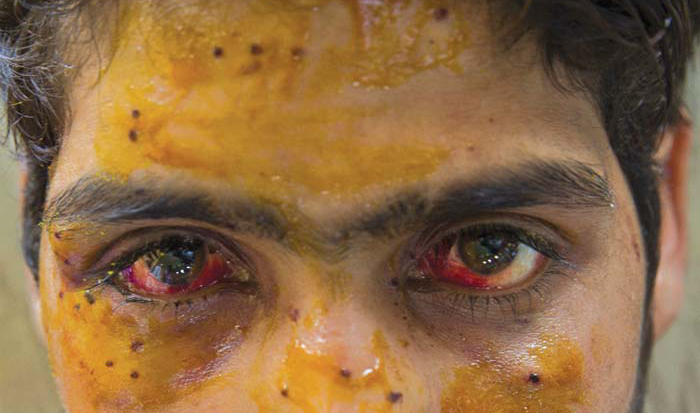Tarique A Bhat
Who is interested in genuine change? No one is generating resources–intellectual, cultural, and scientific–at a global level of competence. We are not putting things in order even in a slow, gradual, or fair manner. There is no proper forum for criticism so younger generation has difficulty in finding an outlet.
It seems we are not adamant in taking the lead in setting the pace for professionalism in any walk of life.
In a fast-changing world, easy observations remain in consciousness long after they have become invalid. We desperately needed real administrative change.
Our young Chief Minister spends much time in inaugurations, book releases and run of the mill award ceremonies. It has now become a routine practice of a “democratic” organization of society instead of truly serving all of our people. We don’t expect anything substantial to happen in the process. Public relations are the main motive driving the current administrative leadership’s interest in the ongoing process, which will continue in spite of the absence of a clear cut road map to change, at the same time, it will continue to fail to produce results.
And now we are dealing with a younger generation of Kashmiris. They
are feeling saddened and troubled the way some elements from Jammu town bully rest of us, and determine our fitness to serve – I am afraid we are heading to “the politics of exclusion” with mere rhetoric from all political shades. There is an vivid expression of a feeling of deprivation, a recourse against a sense of something missing.
Very little has been learned about the development and prosperity (or lack of) in Jammu & Kashmir and a very limited number of individuals are deciding the strategies, positions and tactics.
Several observations can be made and questions must be raised about this situation in which we now find ourselves operating.
At this chaotic juncture of disbelief, confusion and mistrust CM should have been communicating and promoting his own vision. Communication means creating, shaping, publicizing, enhancing or changing public attitudes and perceptions.
I suspect Omer Abdullah’s blurred vision will not be shared by those who are feeling insecure and excluded, politically, economically, socially and culturally. Today, Kashmir’s issues appear the hardest to crack.
Mostly, people want to believe, but they don’t want to be pushed or lectured or forced.
Convictions are created through genuine involvement, through a dialogue, not a monologue.
Omer has to still learn that an ideological opponent’s view can also have validity. In the same way, our media especially the electronic media requires that it includes alternative voices rather than justify their
exclusion; that it reflect on power, not simply reflect power. A more efficient conclusion in is that all alternative points of view have typically been excluded in favor of rulers dominated by establishment perspectives and sensibilities. Stories must be balanced, if you will, by coverage from the bottom up—with an understanding of what happened to our plans, consumers, citizens, and environment.
Government and its machinery seems content for achieving what they were looking for during last many years…the power, the job and good will for their individual selves .
The longer we pursue strategies for individual survival, the less time we have to create any viable, systemic solutions.
Jane Addams has said, “The good we secure for ourselves is precarious and uncertain…until it is secured for all of us and incorporated into our common life.”
If Government desires a democratic society, if it desire transparency and accountability in its affairs, then it must dedicate a sufficient portion of State’s communications capacity to consideration of the public interest.
I think that firm but gradual and slow changes are critical, because when people comprehend why the changes are essential, then the changes will endure.







